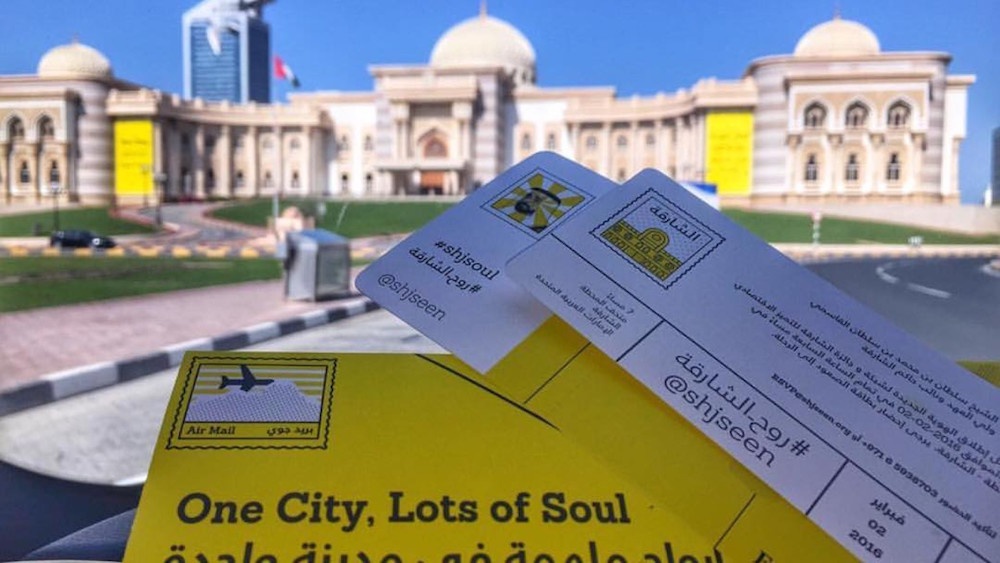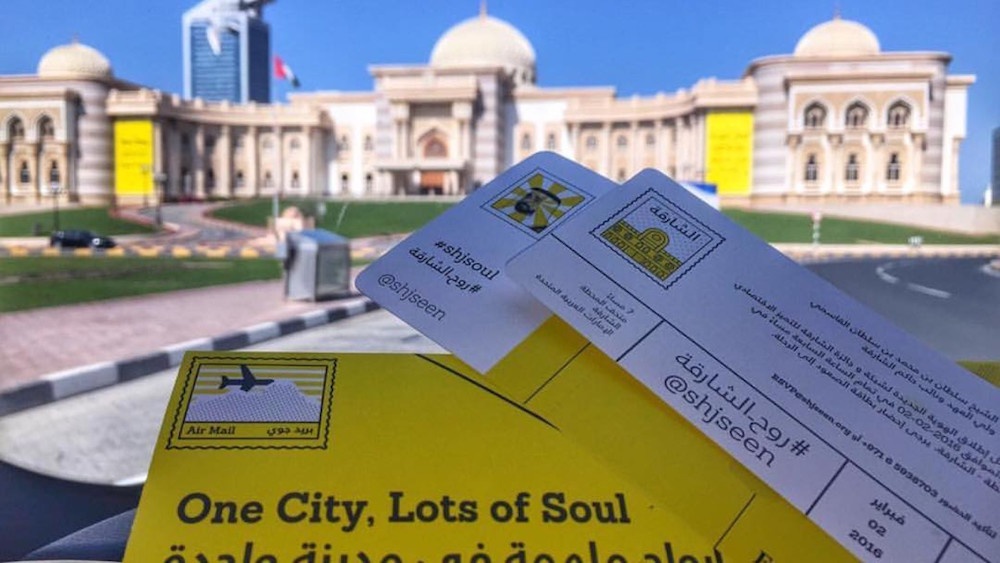Human economics: Sharjah’s homegrown approach to becoming a startup hub

Sharjah is in debt, so it’s lucky they’re well on their way to diversifying the economy away from big corporations.
In January the downgrade of the emirate’s sovereign credit rating came at an inopportune moment.
The emirate’s ruler, Sheikh Sultan Bin Mohammad Al Qasimi had just announced a 22 billion Emirati dirhams budget. There were also the soft launches of Sharjah Media City and Sharjah Publishing City, and the Shurooq’s (Sharjah Investment and Development Authority) ‘Invest In Sharjah’ initiative to attract FDIs (foreign direct investment) into the emirate.
Open door policies
In the backdrop to all of this though Sharjah’s entrepreneurship and innovation scene had also been moving with pace.
The launch of startup-centered initiatives like government-sponsored Sheraa, the Sharjah Chamber of Commerce’s Shjseen, and the AUS (American University of Sharjah) Research, Innovation and Technology (RTI) park, reflect a focused effort by the emirate to attract and retain younger entrepreneurs and companies.
Sara Al Madani, a board member for Sharjah Chamber of Commerce, UAE SME Council, and Shjseen, says that Sharjah has seen double-digit growth in GDP since SME initiatives were launched in the emirate. She’d go as far as to say that “within the next two or three years, Sharjah can actually be the hub for startups in the Middle East.”
She tells Wamda they learnt a lot from China. She says that their trickle-down economy, relying on a large base of SMEs rather than a small base of big corporates, helped insulate the country from the 2008 financial crash.
Najla Al Midfa, Sheraa’s general manager, says that Sharjah universities have graduated many success stories that were not captured by the local ecosystem. One example has been Tara.ai’s Iba Masood, now a successful Y-combinator backed Silicon Valley entrepreneur. Part of Sheraa’s initial remit was to aggregate such AUS alums who’d ventured on their own projects – whether or not they succeeded.
This month, Sheraa’s accelerator program graduated its first batch of startups, which range from the Arabic version of Grammarly, to energy efficiency apps. “The challenge we are facing now is getting Emirati students to take part in this space,” says Al Midfa.

This is a primary concern for any startup initiative in Sharjah, given the emirate’s largely local demographic.
A homegrown Emirati entrepreneur, Al Madani understands the regional culture that inhibits entrepreneurship. She built Shjseen in 2016, in partnership with the Sharjah Chamber of Commerce, on a two-fold mission: activate events that would push the overall Sharjah brand, and incubate entrepreneurs with as little as an idea for a pitch. Shjseen’s two-year-cycle incubator program – the space for which will be launched in March - “takes every mistake that other incubators have made and fixed,” she says, taking in 50 expat and local startups and sponsoring them at no hidden costs.

Human touch
It is no coincidence Sharjah’s startup scene players all stress on the importance of human economics. Sharjah is a growing economy that is attracting people first, businesses second. Inversely, human capital is also its biggest entrepreneurial asset.
“We have this analogy here: if Abu Dhabi is Washington DC, and Dubai is New York, then Sharjah can be Boston. There are around 35,000 university students and 2,000 PhD holders in Sharjah. This is a concentration of [talent] that ought to contribute to the startup ecosystem,” says Hussain Al Mahmoudi, CEO at AUS Enterprises, which is currently undertaking the development of the RTI park.
Adil Parvez, senior manager for technology, media, telecommunications at Monitor Deloitte, says top brass global universities offering media and communications programs in Sharjah, for example, have opportunity to attract and supply talent in the field. “The next question would be how to keep them in Sharjah versus other potentially attractive or established locations such as Dubai Media City or Twofour54,” he says.
Co-dependent relationships
To avoid comparisons with neighboring Dubai and Abu Dhabi, Sharjah is looking for a niche market that aligns with its heritage and values. “Dubai is more of a hustle and bustle kind of place. Sharjah is very much family oriented,” says Parvez. “Startups need a cost-effective place to work and in live in. Sharjah can provide alternatives to a bigger city like Dubai and Abu Dhabi,” adds Al Mahmoudi.
Al Madani believes that Sharjah is physically in a good location and is more affordable and convenient for trade-dependent businesses. But she also sees opportunity in cross-emirate partnerships – such as Shurqoo and Dubai SME’s recent memorandum of understanding.

Al Midfa is capitalizing on Sharjah’s youth entrepreneurship market, with things like workshops in universities. “Sheraa is more about creating entrepreneurs rather than creating startups. Many of these talents will go on to join other accelerator programs and startups in other emirates, but we’re hoping that a good chunk of them will stay in Sharjah,” she says.
In this regard, Sharjah’s USP lies in positioning itself as a R&D startup hub for both global and local companies; which is exactly what RTI’s mandate will be over the next few years.
Al-Mahmoudi says companies with rep offices in Dubai can build on the human capital in Sharjah for a backend R&D office in the emirate. “Today, you see a lot of multinational companies shifting, at least their R&D arm, closer to universities. [Dubai’s free zones] are mainly real estate projects. What we are trying to do is something a little bit different with a focus on research,” he explains. Itself a free zone situated among universities, the RTI park is focusing on six industries: water technology, energy technology, industrial design and architecture, digitization and sustainability.
Keeping it real
There are also trends that are naturally taking shape. According to Al Madani, Sharjah’s food and beverages industry has been on the rise for the last five years, and SMEs in that field have been flocking to the emirate’s Muweilah area on their own. “But now we’ve started zoning as well based on these patterns we’ve picked up,” she adds.
Al-Mahmoudi sees Sharjah as a middle class startup haven, and his bet is on startups that will follow companies that have come out of Sharjah, like waste management company Bee’ah and airline Air Arabia, focused on the local market needs first, scaling second. “It is about devising a model that is natural and caters to the local market. It is not about replicating Silicon Valley […] We had the right model 45 years ago,” he says, whereby companies across the UAE were built on joint ventures between local stakeholders and foreign investors - before emirates started playing host to regional HQs of big global corporates. But “now, we’re talking about innovation; a startup ecosystem that can create economic impact,” shaped by reiterated collaboration between local and global players, and localization of products and services.
Sharjah is also pushing its brand image to attract fresh blood. Aside from providing coworking spaces, mentorship access, cost-effective licensing and skill set development, it must offer entrepreneurs an ecosystem and quality of life on a par with those of neighboring emirates. “When you are an entrepreneur, you want to be surrounded by other entrepreneurs. Once we have the critical mass in Sharjah, a lot of people will want to be here,” says Al Midfa.

Shjseen is rebranding Sharjah as a
modernized startup hub that is deep-rooted in local culture.
(Image via Shjseen)
“Probably one of the most common complaints voiced around Sharjah has to do with infrastructure – like traffic bottlenecks. A lot of these factors work by domino effect. The city has to be practical for it to be considered,” adds Parvez.
Under its remit, Shjseen is undertaking activations to promote the Sharjah brand. It has partnered with the emirate’s tourism department to “show people that you can actually come here and have fun,” says Al Madani.
While Sharjah would inevitably need to secure big corporates to attract regional entrepreneurs, it is giving equal weight to homegrown SMEs. Amongst Shjseen’s roster of partners including LinkedIn, Forbes and Twitter, “one of the first companies we signed up with was Careem, because we believe that they are the backbone of the economy,” explains Al Madani.
The focus on big corporates, adds Al Midfa, lay in creating a value chain
through trickle-down opportunities for SMEs as well as for the wealth of human capital around Sharjah universities.
Al Midfa is also pushing for coordination with public sector entities and departments from the get-go, while Parvez points to city planning and monitoring of investment authorities as areas that Sharjah is best tackling early on. Ultimately, “the international hub model is great for Dubai and Abu Dhabi. What I believe Sharjah is doing is trying to generate more high quality, local sort of initiatives,” he adds.


